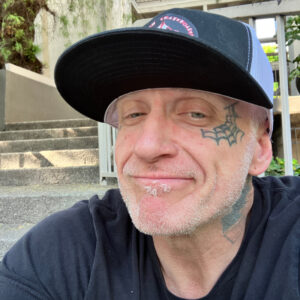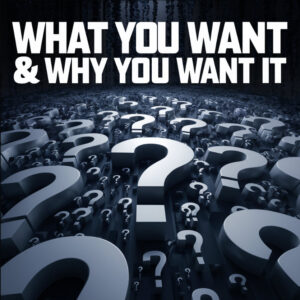Empowering Yourself to Create Sustainable Change
On Tuesday I spoke to a group of Sacramento small business owners and entrepreneurs on the topic of accountability.
When I advertised this event, I chose not to use the word “accountability.” Why not? you may wonder. As a coach, this word is one I use regularly. And when I talk to people who are considering hiring a coach, and one of us mentions the word “accountability,” the potential clients divide into two basic groups. There are those who jump at the opportunity to be “held accountable” and there are those who say “oh no, I was held accountable once before and it was awful!”
That’s why I didn’t advertise using the word “accountability.” And when I finally began to discuss it on Tuesday, I said, erase everything you know about this word or concept and let’s start from scratch. So let’s do that now. Erase. Erase. Erase.
What is Accountability?
It is:
• The key to empowerment
• The quickest way to learn from your mistakes and improve your effectiveness
• The ability to own your choices and move forward purposefully My definition is this.
Accountability is the ability to account for the choices you have made and the results that you have. Accounting is a neutral term. If you consider a ledger, it holds numbers and facts. There is no right/wrong, good/bad. They are just numbers. Think about your choices this way. If I am “accounting for my choices” I am simply stating what is true. And I do it without energy. (I call this “neutrality”.)
Why do I want to account for my choices? So I can learn and make different choices in the future and generate different results — the results I want. This is why I call it the “key to empowerment.”
Accountable vs. Victim
One way to understand accountability is to look at its opposite – victimhood. There is a spectrum and we are all on it. It looks like this:
Accountable |—————————————————————————-|Victim
Stephen Covey said: “Our lives are the results of our choices. To blame and accuse other people, the environment, or other extrinsic factors is to choose to empower those things to control us.”
Victimhood is blaming something outside myself for my choices and results — the weather, my boss, the judge, the traffic, my childhood, my secretary, my spouse, my kids, and on and on. The opposite is accountability – I account for my choices – meaning I look at myself to see where I made choices that work and that do not work. Working choices – create the results I say I want. Non-working choices – create the results I say I do not want.
The process is simple – I have a result I don’t want and I look back in time and ask myself what choices did I make such that I now have this result?
Examples
I am late for a meeting.
Victim stand: “The traffic was awful. There was a terrible accident. I’m so sorry I am late. My kids were sick. My spouse turned off my alarm clock. I am sorry.”
Accountable stand: “I am late for this meeting. I notice as I look back over my morning, that I made some choices that led me here. I notice that I left at the very last moment. I am realizing when I do that I don’t leave room for there to be unforeseen circumstances such as traffic. I notice that I did not check my alarm last night. I notice that I neglected to set up a process where my kids can get out of the house easily. Starting now, I will leave 5 minutes early for everything and see if that helps. If it doesn’t enable me to start being on time, I will make another change until I am easily arriving to my destination early and stress-free.”
Notice:
1. The victim spends a lot of time apologizing.
2. The accountable person realizes where he/she can make changes in the future – this is the true key to empowerment.
3. Of course there are circumstances outside you, such as the traffic, but you cannot control them. Empowerment comes from asking “what did I do?” and “what can I change in the future?” even when I can see many other things were involved in my result.
The Foundation to Sustainable Change
You can take classes, learn tools and read books, but the only way you can make and sustain the change you want is to take a very honest look at what you are choosing. This is the foundation of change – similar to the foundation of a house. It is the basis on which all changes must rest. Empowerment is taking the power for yourself. Victimhood is placing the power in someone or something else. Always ask yourself:
Where am I placing my power? If you point outside yourself, you will be unable to effect change.
It’s About Choice
Accountability is entirely about choice. It is a process of looking at the choices you made and the choices you had. For many people, the first step is just to see that you have choices. You always have choices. Once you begin to really see this, then you can move on to discovering what all your choices are. But you will not be able to discover what all your choices are if you cannot see that you have choice as a basic premise. “I have no choice” is a victim position. The farther toward “victim” you are on the above continuum, the less likely it is you can see your choices.
Here is an exercise to help you begin to see you have choices. Start asking yourself what are all the choices I have in this situation? You may want to start with something simple like what you decide to have for breakfast. Notice what you choose to have and notice all the things you are choosing not to have. Notice you could choose to have something else that is in your house, you could have cookies, or cake; or you could drive to a restaurant and eat out. If your mind says, “No, I cannot choose to have cake – I will gain weight;” or “No, I cannot choose to eat out – I will be late for work,” just notice this as the dialogue in your head that leads you to the conclusion that you don’t have choices. Now say to yourself, “I can choose to have chocolate cake or go out. And I am choosing not to.” I promise you that if you begin to think and speak in this way, you will begin also to see all the other choices you are dismissing without even considering seeing them. It will expand your conscious awareness of all the choices you have. This is empowerment, as you have more and more options to choose from.
I could probably write a book on accountability. It is my favorite coaching tool because it is so foundational and because it makes all change possible. Email me to receive an accountability formula you can use to begin to look at the choices you have made and how to learn and make different choices. Email me to learn about my accountability and enrollment 10-week series of classes beginning March 1, 2012.






